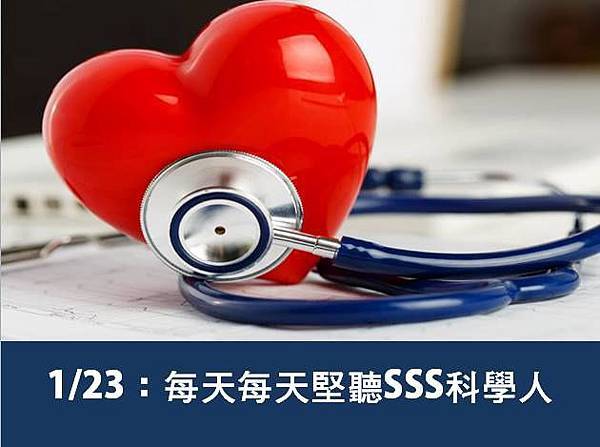 今日主題:Drugged Gut Microbiome Cuts Heart Risk in Mice
今日主題:Drugged Gut Microbiome Cuts Heart Risk in Mice
腸道微生物有益亦有害
 洪欣老師推薦:托福聽力最好的課外教材:60-Second Science
洪欣老師推薦:托福聽力最好的課外教材:60-Second Science
 康康精選托福會考的主題,堅持每天精聽一定會進步的哦!!
康康精選托福會考的主題,堅持每天精聽一定會進步的哦!!
 建議方法:
建議方法:
1. 先聽兩三遍 (不看文稿)
2. 再一句一句聽寫 (每句都要聽寫數遍,直到寫出85%以上的字)
3. 最後check文稿,看哪聽不出來,單字沒背過,還是發音不熟。
4. 堅持天天聽,就能每天進步哦。
 MP3音檔 (按右鍵可下載聽):喜歡的同學,幫忙推或按讚哦~~
MP3音檔 (按右鍵可下載聽):喜歡的同學,幫忙推或按讚哦~~
http://online1.tingclass.net/voaspe/…/20160112sa_science.mp3
 只有音檔怎夠,聽不懂地方,不用怕,康康幫你準備好中英文稿了:
只有音檔怎夠,聽不懂地方,不用怕,康康幫你準備好中英文稿了:
 中英文稿:
中英文稿:
The microbes in our gut play a big role in helping us digest our food. But as they break down nutrients, they also generate secondary compounds that can influence our health. Take carnitine, or lecithin—substances found in red meat. When your gut microbes break them down, the bugs excrete the waste product trimethylamine, TMA. Which your liver enzymes convert to trimethylamine-N-oxide, TMAO, a substance that ups the risk of heart disease.
我們內臟中的微生物在幫助我們消化食物方便具有重大的作用。但是,微生物在分解營養物質時,也會產生影響我們健康的次生代謝物。就以牛羊肉的肉鹼或卵磷脂 為例。當我們的內臟微生物在分解這些物質的時候,微生物就會分泌廢物三甲胺,我們的肝臟會將三甲胺轉化成為三甲胺氧化物,這種物質會增加得心臟病的風險。
But this effect isn't limited to red-meat eaters. "We're constantly feeding our gut microbes these compounds. Even in the most ardent vegetarian or vegan it happens." Stanley Hazen, a physician in preventive cardiology at Cleveland Clinic. "Every time you eat, even when you eat a pickle or a cucumber or a pure piece of lettuce, once you eat something, your gallbladder contracts and squirts some bile into the intestines to try to help digest the food." And even bile, he says, has compounds, like lecithin, that gut microbes digest into TMA.
但是並不僅僅吃紅肉會產生這種影響。“我們經常會餵自己的腸道微生物這些化合物。即使我們實用素食或者純素食也會這樣。”斯坦利•海森,是克利夫蘭醫學中 心預防心臟病的內科醫生。“只要你一吃東西,無論是一口泡菜、一根黃瓜、或者僅僅是一小片生菜,你的膽囊就會收縮,分泌一些膽汁,幫助消化這些食物。”海 森說,即使是膽汁,裡面也有卵磷脂,微生物可將卵磷脂轉變成三甲胺。
So why not block the gut microbes from making TMA in the first place? Hazen and his colleagues found a substance that does just that. It's a kind of butanol called DMB, and it's found in extra-virgin olive oil, grapeseed oil, and some red wines and balsamic vinegars. When mice ate DMB, the compound blocked the gut bacteria from producing TMA—which in turn prevented clogged arteries in the animals.
那麼,為什麼不阻止腸道微生物產生三甲胺呢?海森和同事們發現,有一種物質就有這種功能。這是一種丁醇,名字叫DMB,存在於初榨橄欖油,葡萄籽油,一些紅酒和香醋中。當老鼠食用DMB後,這中物質就會阻止腸道細菌分泌TMA——進而預防動物患動脈阻塞疾病。
"I kind of like to think of this as a statin for microbes. When we take a statin, or something that blocks cholesterol synthesis in our body cells, we're not killing the cell, we're just preventing the body from making cholesterol . In an analogous way, this is preventing the microbe from making TMA, and that therefore in the host reduces TMAO levels and is reducing diet-induced atherosclerosis." The study is in the journal Cell.
“我想這是一種類似抑制素的物質。當我們食用抑制素或類似物質時,這些物質就會阻礙身體細胞膽固醇形成,我們並沒有殺死細胞,僅僅是在阻止身體形成膽固 醇。類比一下,這就相當於阻止微生物生成三甲胺,因此宿主體內,三甲胺就會減少,也就會減少進食引起的動脈粥樣硬化。該研究結果發表在《細胞學》雜誌上。
As for whether this finding explains the heart-healthy benefits of the Mediterranean diet for humans? "We haven't studied the Mediterranean diet. But you can start connecting the dots. And I think that is an area where future studies need to go. " Until then, no harm in a little olive oil—especially if you're putting it on a nutritious salad.
“那麼該研究結果能否解釋地中海飲食有利心臟健康呢?我們尚未研究地中海飲食。但是,你可以將此類情況進行梳理。我認為這是未來研究需要研究的領域。”直到現在,少量食用橄欖油並無害——尤其是你將橄欖油塗在營養的沙拉上面。



 留言列表
留言列表
